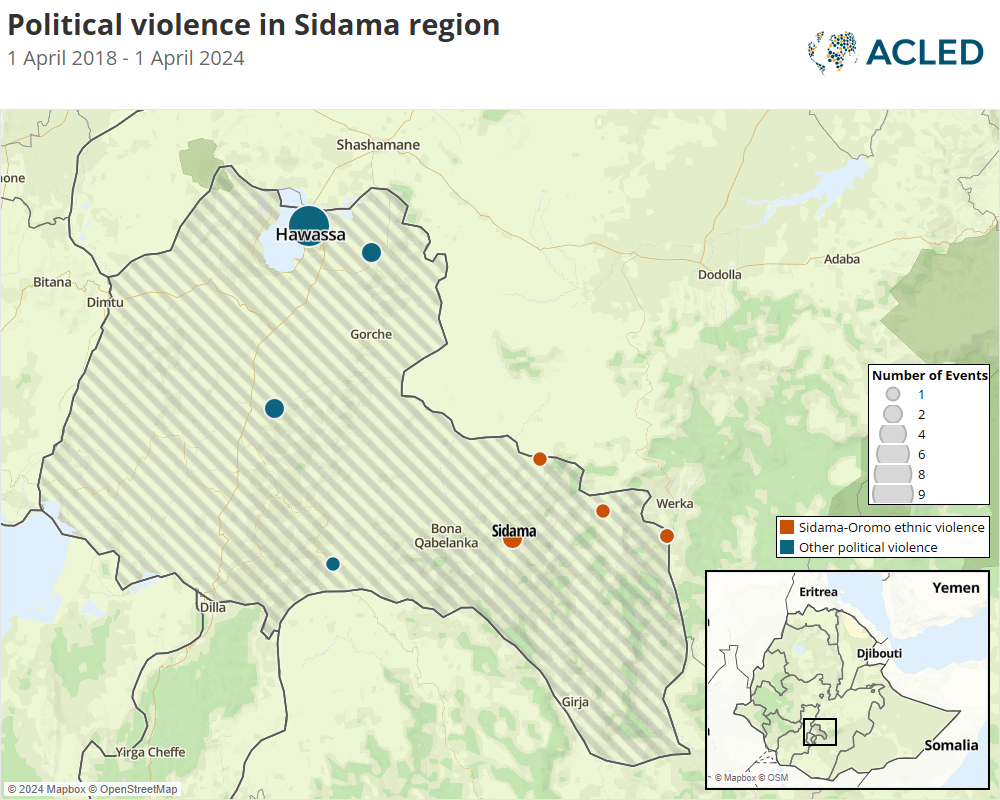Last updated: 08/08/2024
Sidama region was officially established on 18 June 2020, following a referendum vote. During the referendum, an overwhelming 98.5% of voters expressed their support for breaking away from Southern Nations, Nationalities and Peoples region (SNNPR) to form an independent state.1International Foundation for Electoral Systems, ‘Ethiopia Holds Referendum to Determine Statehood for Sidama Zone,’ 15 January 2020 The demand for an independent Sidama region dates back several decades but gained renewed momentum after Prime Minister Abiy Ahmed assumed power in April 2018. Many viewed the self-determination process of Sidama as a litmus test for both the newly elected prime minister and Ethiopia’s ethno-federalist system. While the Ethiopian constitution guarantees the right to self-determination for ethnic groups, previous authorities under the Ethiopian People’s Revolutionary Democratic Front were intolerant of independence requests, often resorting to crackdowns and arrests.
After the change in government in 2018, proponents for an independent Sidama state once again voiced their demands and submitted a formal request for statehood in July of that year. However, the government did not respond to this request for an entire year, leading Sidama officials to threaten the unilateral declaration of a new regional state. This sparked demonstrations in July 2019, with participants demanding statehood.2International Crisis Group, ‘Time for Ethiopia to Bargain with Sidama over Statehood,’ 4 July 2019; Al Jazeera, ‘Ethiopia: At least 17 killed in violence over Sidama autonomy,’ 20 July 2019 Dozens of people were reportedly killed as security forces intervened. In response to growing pressure, the federal government and Sidama leadership agreed on a plan proposed by the National Election Board of Ethiopia, leading to a referendum held in November 2019.
Since its establishment, Sidama region has faced financial challenges, resulting in weak service provision.3Mistir Sew, ‘Central state’s fiscal control stunts Ethiopian federalism,’ Ethiopia Insight, 21 April 2023 Several officials have been accused of corruption and subsequently arrested. Despite these difficulties, instances of violence have been infrequent. Occasionally, communal clashes over water and grazing resources occasionally occur between the Sidama and Oromo communities along the shared border (see map below).

Prior to their dissolution in April 2023, the Sidama regional special forces played a key role in supporting the federal government during the northern Ethiopia conflict, as well as in other conflicts such as in Metekel zone in Benshangul/Gumuz region.4AFP Fact Check, ‘Investigation reveals execution took place in western Ethiopian forest, not northern monastery,’ 14 June 2023; DW Amharic, ‘The Sidama region special force deconstruction,’ 5 May 2023

